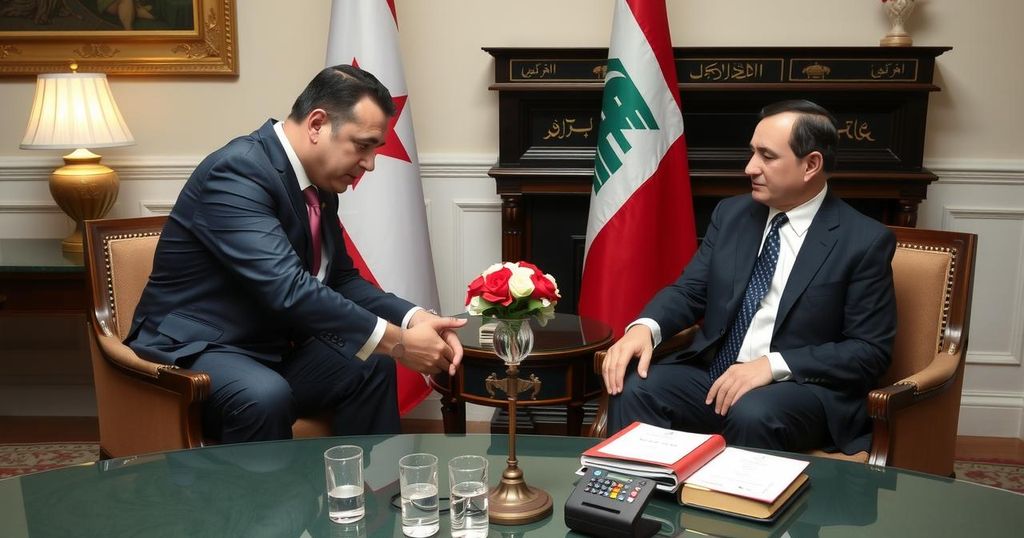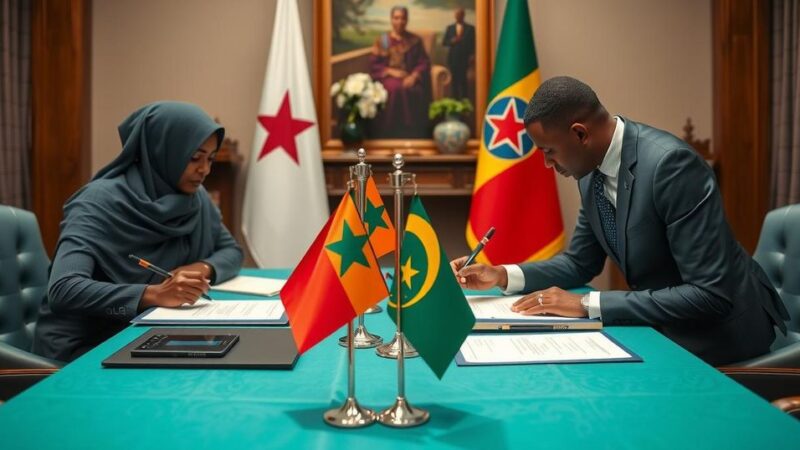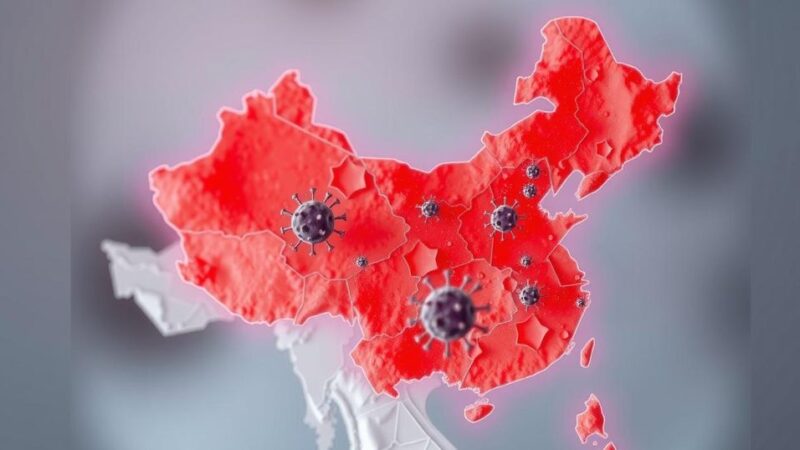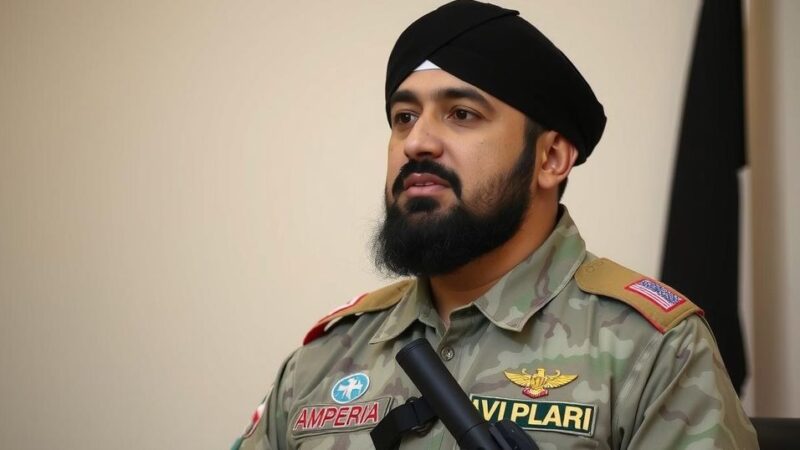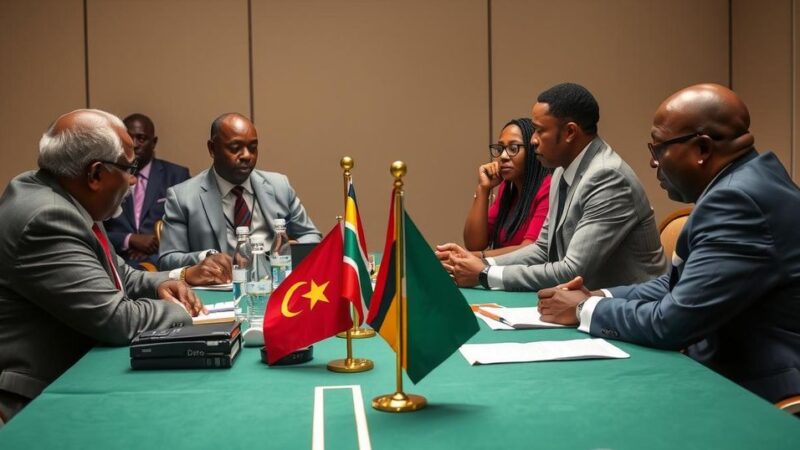General Joseph Aoun has been elected Lebanon’s 14th president, ending a two-year political vacuum. His election signals hope as Lebanon confronts major political and economic challenges. Aoun aims to unify factions and strengthen the military while receiving broad support both regionally and internationally. The success of his presidency hinges on establishing a functional government to implement vital reforms.
General Joseph Aoun has been elected as Lebanon’s 14th president, marking a pivotal moment for the nation that has endured over two years of political inactivity. His election is seen as a potential resolution to Lebanon’s prolonged political and economic crises. During his tenure as Commander of the Lebanese Armed Forces, General Aoun played a vital role in stabilizing the country amid rising tensions and military engagements. His key commitment as president will be to unify various political factions and lead crucial postwar reconstruction efforts.
Aoun’s election was the result of a crucial compromise among Lebanon’s political blocs, obtaining 99 votes during his second candidacy. This outcome is particularly significant after 12 previous failed attempts amid conflicts mainly attributed to Hezbollah’s influence. Although his presidency has garnered wide support regionally and internationally, it also faces substantial opposition, highlighting the ongoing divisions within Lebanon’s political landscape.
Expressing his goals during his parliamentary address, Aoun committed to enhancing the military’s capabilities to protect the nation’s borders, combat terrorism, and rebuild the nation from the extensive damages incurred from Hezbollah’s military engagements with Israel. His leadership style has been characterized by maintaining the neutrality of the armed forces amid political tensions and corruption,
General Aoun’s presidency received broad international support, further evidenced by congratulations from various leaders, including Saudi Arabia’s King Salman and French President Emmanuel Macron, who emphasized the need for reforms and the restoration of Lebanon’s stability. Aoun’s capacity to unite Lebanon’s disparate political factions amid mounting economic challenges will be critical for steering the country toward recovery and reform.
While Aoun is expected to lead Lebanon towards necessary reforms, the major challenge will be establishing a functional government capable of addressing the urgent needs of the Lebanese people amid ongoing economic distress. A consensus cabinet will be essential to navigate the political landscape and ensure the implementation of crucial policies aimed at recovery.
The election of General Joseph Aoun as Lebanon’s president occurs in a critical period characterized by political instability and economic deterioration. The country has witnessed a power vacuum lasting over two years and struggled with the aftermath of various conflicts, including the war with Israel. General Aoun, who has tenured as Commander of the Lebanese Armed Forces since 2017, is tasked with guiding Lebanon through reforms to rejuvenate its political system and stabilize its economy. His previous successes have contributed to his support and recognition as a leader capable of addressing the multifaceted crises facing Lebanon.
In conclusion, General Joseph Aoun’s ascension to the presidency represents a chance for Lebanon to reconcile its internal divisions and address the pressing economic challenges threatening its future. His commitment to national unity, military security, and postwar reconstruction is crucial. The support he has garnered from diverse political entities and international leaders underscores the hope for a more stable and prosperous Lebanon under his leadership. Nonetheless, achieving these ambitious goals will require navigating the complex political dynamics that have historically hindered progress in the country.
Original Source: www.arabnews.com

